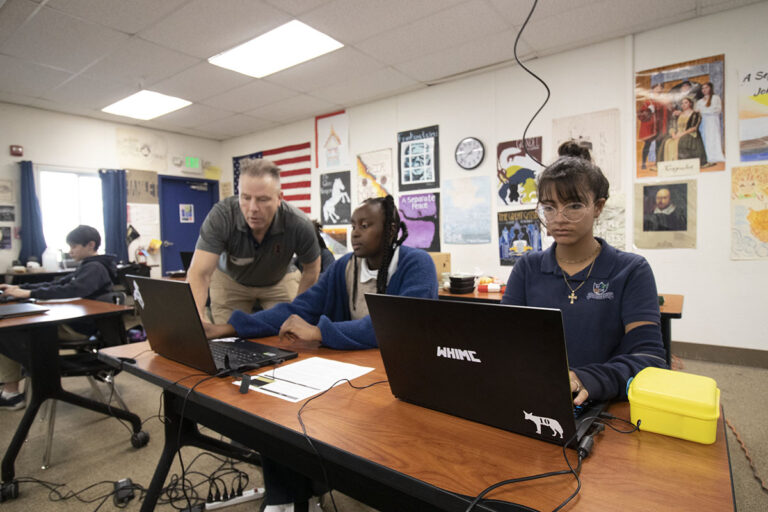Artificial Intelligence is making an impact on every aspect of life. This article could have been written by ChatGPT, but it wasn’t.
In education, there’s a growing interest in exploring how AI tools can be used to increase accessibility. But there are also concerns about potential misuse.
Experts will convene to discuss the future of AI in education at an upcoming forum on Thursday, Nov. 14, at the College of ACES Library, Information and Alumni Center.
One of the panelists will be Chad Lane, a professor of educational psychology and computer science at the U of I whose research focuses on integrating AI into systems to improve teaching.
The beauty of AI, Lane said, is the connection between it and people. For example, generative AI might play a role in formulating ideas, whereas AI tools like ChatGPT or Claude can point out flaws in ideas and prompt revisions.
“Now we have new tools for talking to the computer and getting some of those social benefits of asking questions,” he said, “Having a dialogue and generative AI changes takes that to a whole new level.”
One of Lane’s research projects explores using the video game Minecraft as a platform for teaching children astronomy. Through interactive gameplay, students can learn concepts like different forms of gravity and surface features.
“We had non-player characters walking around who could answer questions and give you challenges so you could go and measure the atmosphere on all these fantasy worlds and gravity differences,” Lane said.
Lane said his research group has also used AI in the background to assess students’ performance and guide students to follow different paths of exploration.
Tawnya Means, assistant dean for educational innovation at the U of I, will also present at the AI in education forum. Means works with departments to implement AI-driven change focused on transforming classrooms.
Part of that work includes using AI to create digital avatars for faculty members, she said. Instructors can then write scripts instead of going to the studio to record a video lecture. This tool is useful for some topics that change constantly, Means said, such as tax law.
“When we have an instructor who records a video around tax law, and then the tax law changes, all they have to do is change the script, reload the script, and the avatar changes the video to fit the new script,” she said.
This kind of AI tool can help instructors save time, and also lays the foundation for future innovations, such as Virtual Reality or VR.
Means expects that in the future, students can have conversations with faculty members in a virtual world by putting on VR headsets.
Means said AI can also make learning more accessible. For example, if students have a language barrier, trouble hearing, or a visual impairment, “we can use it to create remedial content for you to catch up if you’re not at the level of everyone else in the classroom,” she said.
While AI can provide various benefits in education, concerns still remain about the future of AI in education.
A common fear among educators, Means said, is that teachers and instructors will one day be replaced by AI — which she strongly believes is not true.
“Humans can build relationships,” she said. “You can learn to trust a tool, but you aren’t going to get the same sense of connection or belonging or feeling of the humanity aspect of interacting with a person from an avatar or from a chat bot.”
Lane said balancing the strengths and weaknesses of AI is important. AI systems are helping researchers with discovery, but people should also be aware of potential problems of AI, such as protection of privacy.
Thursday’s event aims to provide attendees with a deeper understanding of how AI is influencing the future of teaching and learning, as well as highlight policy implications for K-12 education.

